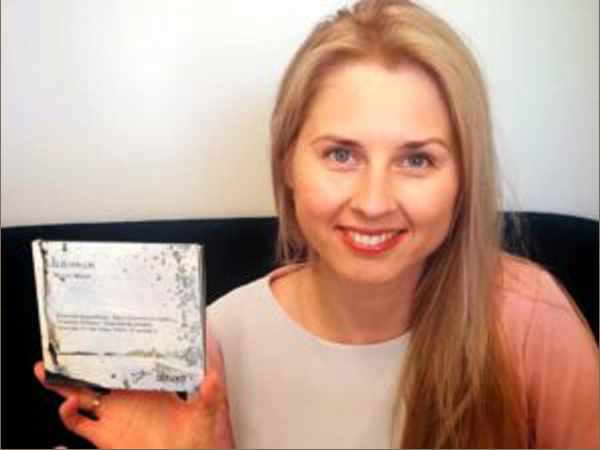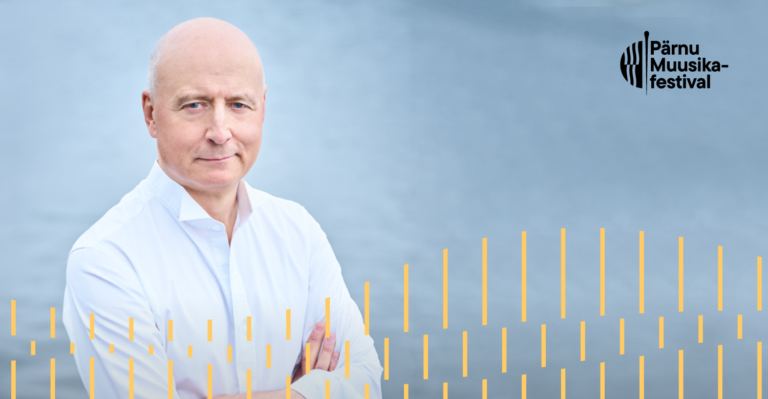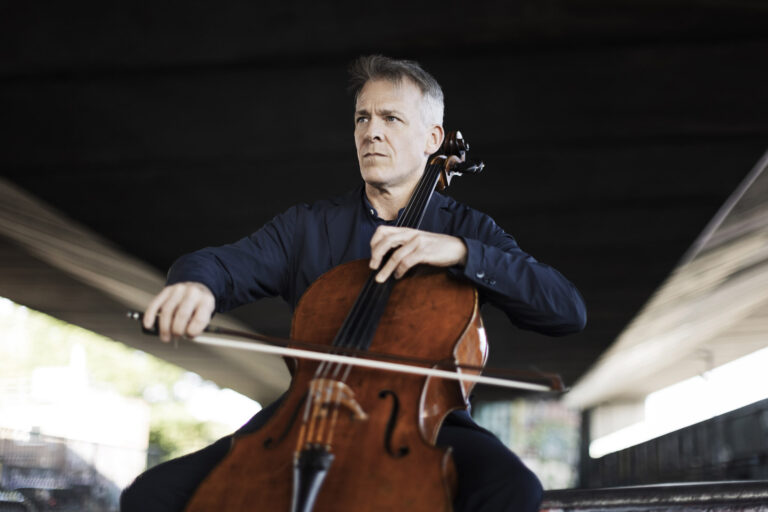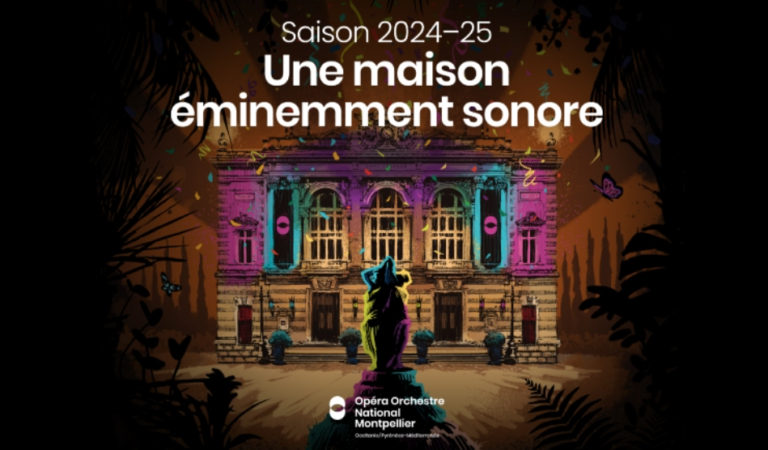Respected British music critic Simon Cummings reviewed “Born in Waves” on Kairos
Elis Hallik is probably the most interesting Estonian composer who, thus far, i haven’t written much about. During my annual trips to the Estonian Music Days in recent years, she has rarely been featured, so until recently, all i knew of her music were two chamber works, To Become A Tree – probably her most well-known piece to date – and Some Paths Will Always Lead Through the Shadows, the world première of which i explored in my 2022 Lent Series. A couple of pieces isn’t anywhere near enough to get a clear picture of a composer’s outlook and language but, happily, that situation has now been greatly improved with the new release of a portrait disc, featuring nine of Hallik’s compositions for various instrumental formations.
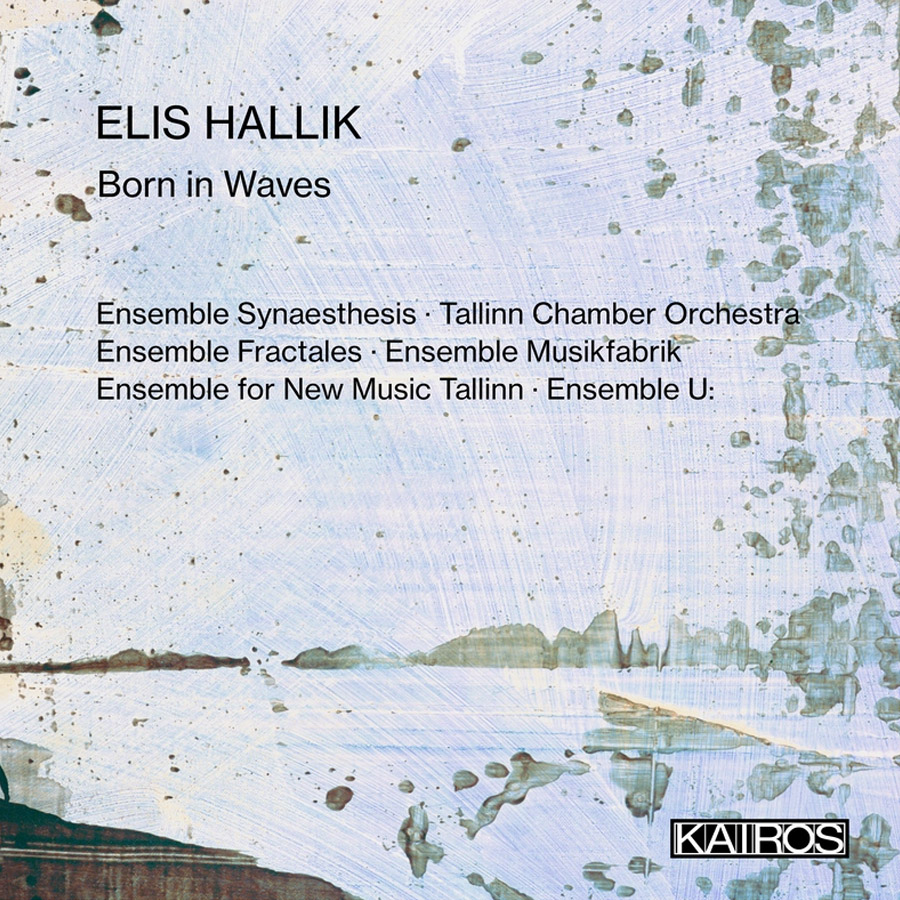
Both of the works i mentioned are included on this disc, so they’re a good place to start. To Become A Tree was included on the Estonian Music Information Centre’s 2017 album New Estonian Chamber Music; the same recording is used here, but has clearly been remastered a bit, sounding more vibrant. Apparently this makes quite the difference; hitherto the piece struck me as only mildly engaging, but i have to admit to finding it a lot more compelling as presented here. Composed in 2016, an interesting aspect of To Become A Tree is the way it moves from an initially vague, broken-up soundworld to a point where the bass clarinet assumes command, squalling into the foreground and highlighting how reserved they’ve all been. At which point the prevailing tentativeness is thrown off for a time, though returning to a group texture until, shortly before the end, a new pushy idea starts up like a machine spluttering into life. Deep grinding, rumble, resonance… and the work ends; that description perhaps sounds somewhat uneventful, even anticlimactic, but there’s a fascinating sense of interaction and effort permeating the material; perhaps To Become A Tree is less about the result than the effort.
As i’ve discussed Some Paths Will Always Lead Through the Shadows previously i’ll only touch on it here, as the performance is the same one, of the première in April 2021. It’s worth noting again the kinship to a work like Boulez’s Derive I, in its slow-moving, slippery, tremulous but lyrical sensibility. In many ways this piece is paradigmatic of most of the other works on the album. The exception is Impacts, composed in 2014 and as such the earliest piece included. A duet for cello and double bass, its short exploration of percussive patterns eventually turning into pitches is mildly interesting but lacks the ambition and, ironically, impact typical of Hallik’s work.
Stoicheia, a concerto for two violins and strings, dates from only a year later but is a powerful demonstration of how nebulosity and lyricism can come together to make something elusive yet immediate. Taking its title from the treatise on the elements by Euclid, the piece somewhat alludes to this in an introduction filled with elemental possibilities: gestures, ricochets, runs, melodic feelers, emerging from a kind of treading water to prepare what’s to come. Yet there’s something of the same unpredictable progression heard in To Become A Tree, building to high points of intensity only to pass beyond into streaks of soft vapour, the soloists soaring into the stratosphere. The centrality of the two violins is interesting, considering they spend so much of their time at this altitude, the strings filling out below them, while their ongoing song instils excited energy and increasing warmth.
Doch manchmal erhellt sich die Seele, wenn sie frohe Menschen denkt, dunkelgoldene Frühlingstage, the only vocal work, demonstrates a similar inner energy within a context that floats, soars and drifts. Hallik transforms a text by Trakl into a lengthy semi-drone work for soprano, flute and live electronics, where the material seems to be responding to the words by tumbling gently in a hovering space. Though ostensibly relaxed in tone, there’s a tautness to its soundworld that becomes increasingly apparent as the work progresses, which in turn holds us in place as we listen.
Though purely acoustic, something of the same timbral character permeates the title work, Born in Waves, which dates from 2021. We’re back in a place of slow, tremulous lyricism, where remote trills, soft multiphonic wails and angular glissandi – another collection of fundamental elements – speak from something of a distance, though as if all acting as one. Hallik suddenly clarifies them, before pushing beyond into a parallel world to Some Paths Will Always Lead Through the Shadows, combining sustained and gestural ideas such that the music has momentum yet also floats.
The emphasis in many of these pieces is quite abstract, focusing on the purely musical, but a markedly different tone is heard in Touching the First Sounds, an ensemble piece from 2019. It’s as if the instruments were caught in the pull of an outside force, causing their pitches to rise, in the process making their united song more plangent and forceful. It’s a mesmerising sequence that becomes rhythmically broken up, introducing more personal ideas from the players, before being fragmented and pared back. The music reduces to almost nothing, drifting motes in space, vestiges of calls and cries.
A similar plangency is heard in Like a Swan, composed last year, which came in the wake of the war against Ukraine and the death of Hallik’s father. The ensemble is again grouped together, practically huddled, again articulating themselves through an arresting combination of movement and semi-stasis. What plays out is a music that seems all the more direct for its obliquity. None of the ideas exhibit obvious strength, certainly not enough to dominate or lead the piece, which instead progresses via a series of intense group swells, peppered with not so much small tendrils as cilia, vibrating round the edges of the combined sonic object. Yet Like a Swan is all too direct in its anguish, bespeaking a confused, shaking, dirge-like expression that can only emerge with difficulty and pain.
There are many highlights on this album, but it ends with perhaps the best of them all. Above also dates from last year, and my first contact with the piece was via an interactive project by Estonia’s premier new music group, Ensemble U:. The project investigated “the role and potential of musical recordings”, exploring ways that compositions could be created such that they would be different on each performance, heard via online software that created a new permutation each time it was played. Hallik composed Above for this project (its original online version is still available), heard here in what should possibly be regarded as just one version of many. It unfolds as a blurring of consonance and dissonance, where tones buzz and jar against each other in close proximity, causing ephemeral semblances of clarity that are immediately lost in shimmer. Coming after Like a Swan, bringing the album to a close, it could hardly be more perfect. There’s something hymn-like about its dogged forward motion, forming abstract shapes that once again become a chorus that could hardly be more expressively immediate.
Born In Waves was recently released by Kairos and is available now on CD and download direct from the label; elsewhere it’s released on 24 November, and available for pre-order.
The original review is from here.
